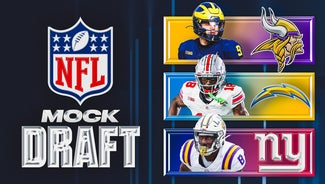





































































































































Black History Month: Alan Page ruled on field, in courtroom

Alan Page grew up to be a Hall of Fame football player, but he always wanted to be a lawyer. He loved watching “Perry Mason” on TV, and the 1954 Brown v. Board of Education case ignited something in his young mind.
”I can remember as a 9-year-old, 1954, reading newspaper stories about the Brown vs. Board of Education and somehow, don’t’ ask me how, understanding the significance of what the court had done,” he said of the Supreme Court’s ruling the segregated schools were unconstitutional. “I was fascinated by the power the law has to bring about change. “
And so Alan Page grew up to be a Hall of Fame football player and the first African-American member of the Minnesota Supreme Court.
“It was a big deal, but in my world it wasn’t,” Page said. “It was an opportunity for me to serve, it was an opportunity for me to perform as well as I could. I suppose to some degree it makes it clear that whether you’re a person of color or not, you can have the talent and the skills and the wherewithal to perform the judicial responsibility at a high level.”
In 1945, Page was born in Canton, Ohio, where his bust now rests in the Hall of Fame. His parents told him to do the best he could at whatever he tried. Every parent says that, of course, but that message stuck to Page’s brain and wormed its way deep inside.
”If you’re going to be a garbage collector, be the best garbage collector you can be,” he said. ”If you’re going to be a doctor, be the best doctor you can be. Fortunately for me, don’t ask me why, I took that to heart. I think one of the problems people run into is there’s a tendency to perform at the level of the competition. In doing that, in trying to do that, most people don’t play to their full potential.”
He became an All-American at Notre Dame and a nine-time Pro Bowl defensive tackle for the Minnesota Vikings and Chicago Bears from 1967-81. During his football career, he was going to law school, fitting in the coursework where he could. In those days it was common for NFL players to have offseason jobs, so he didn’t feel much different from his teammates.
What attracted Page to the law, he says, was a pursuit of fairness, an interest he indulged as a player by serving as a representative for the NFL players union for most of the '70s.
He got his juris doctor degree from the University of Minnesota in 1978, then played three more NFL seasons. By 1985 he was Minnesota’s assistant attorney general and in 1992 he was elected to the Minnesota Supreme Court, the first African-American to hold that position.
Alan Page the grown man didn’t think much of it, but when he thinks about the 9-year-old who was so moved by the Brown vs. Board case, it starts to feel a little bigger.
”If there’s something important in it being a big deal, it’s the impact that it had, has on young people,” Page said. “We look at the world from wherever we are. And if you don’t see somebody who looks like you, who comes from where you come from, in positions of authority, you never think you have that within you. So from that standpoint, I think it was very important, even for me, for other young men and women of color to see someone from their background being successful.”
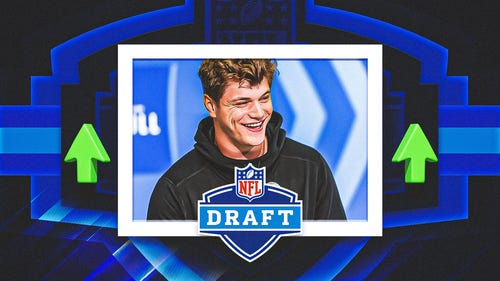
2024 NFL Draft odds: Vikings, Patriots are clear favorites to draft J.J. McCarthy

2024 NFL jersey redesigns: Browns latest team to make change
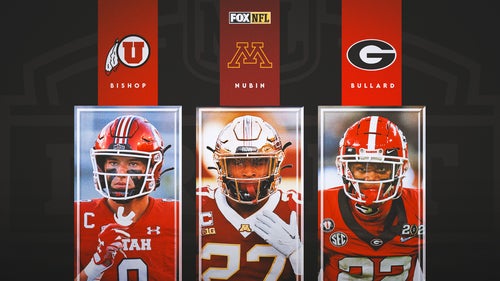
2024 NFL Draft safety rankings: Pac-12 prospects make up half of the top 10

Dwight Freeney says Tom Brady was one of the toughest NFL QBs for him to sack
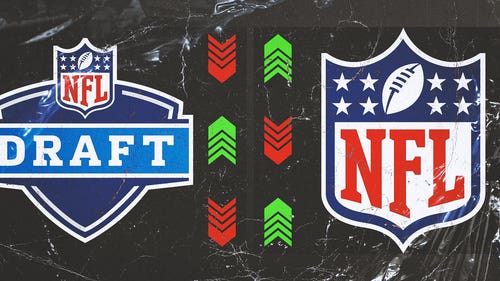
The art of NFL Draft misdirection: How teams use subterfuge to hide their plans

2024 NFL Schedule Release: Date, when does the season start?

2024 Green Bay Packers mock draft: Loading up on the defensive side

Robert Kraft reportedly warned Falcons 'not to trust' Bill Belichick
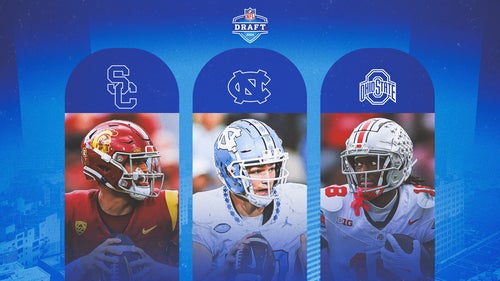
2024 NFL Draft prospect rankings: Top 100 led by Caleb Williams


2024 NFL Draft odds: Vikings, Patriots are clear favorites to draft J.J. McCarthy

2024 NFL jersey redesigns: Browns latest team to make change

2024 NFL Draft safety rankings: Pac-12 prospects make up half of the top 10

Dwight Freeney says Tom Brady was one of the toughest NFL QBs for him to sack

The art of NFL Draft misdirection: How teams use subterfuge to hide their plans

2024 NFL Schedule Release: Date, when does the season start?

2024 Green Bay Packers mock draft: Loading up on the defensive side

Robert Kraft reportedly warned Falcons 'not to trust' Bill Belichick

2024 NFL Draft prospect rankings: Top 100 led by Caleb Williams
